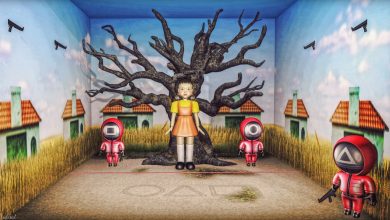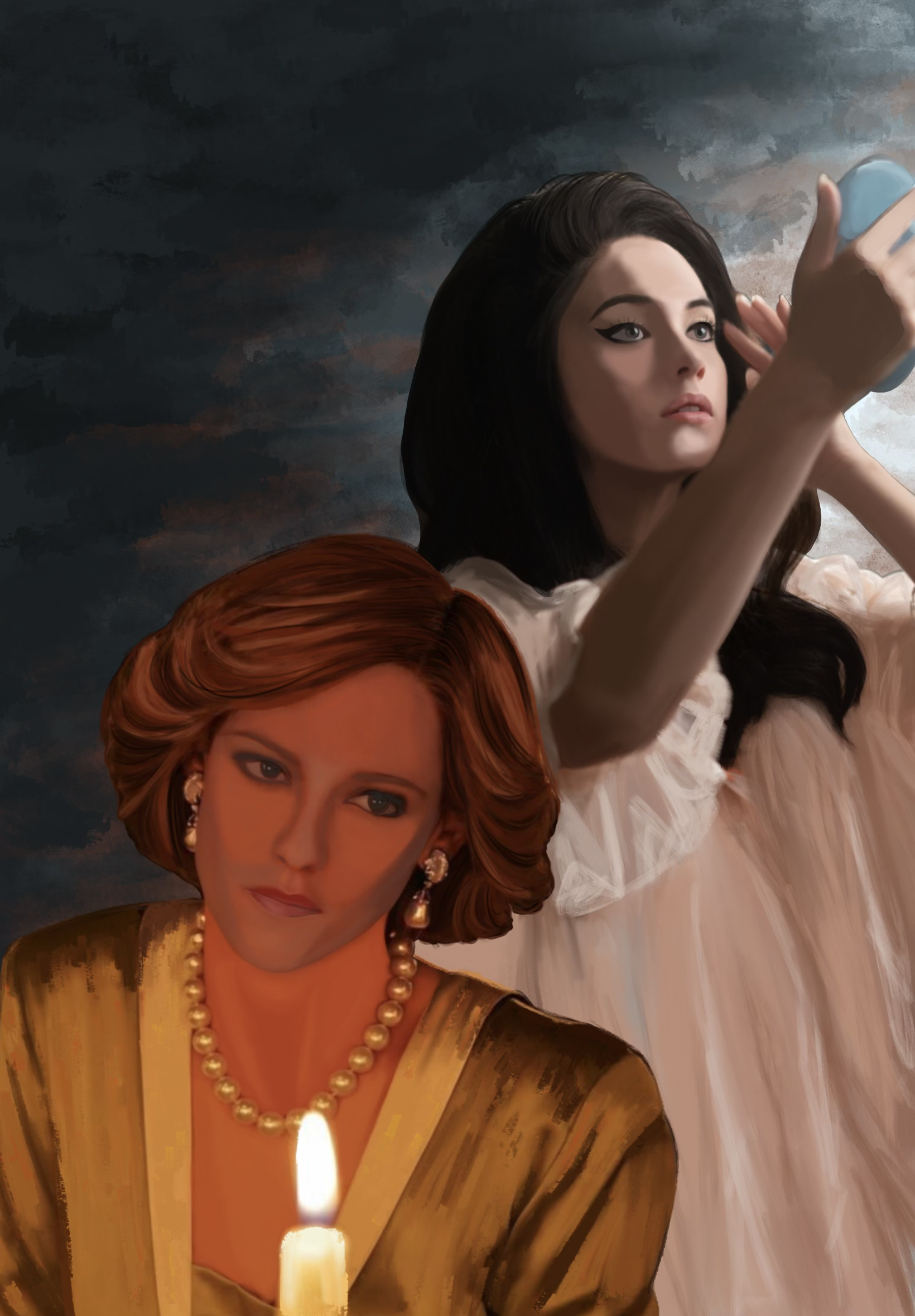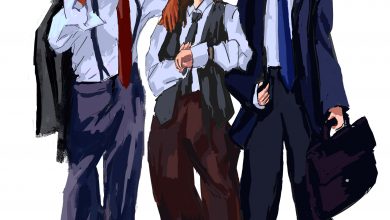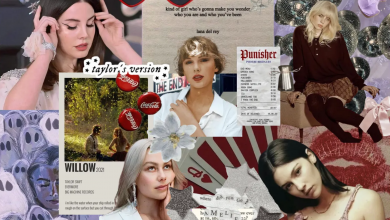A Chat with LP: Artist, Feminist, and Free Spirit
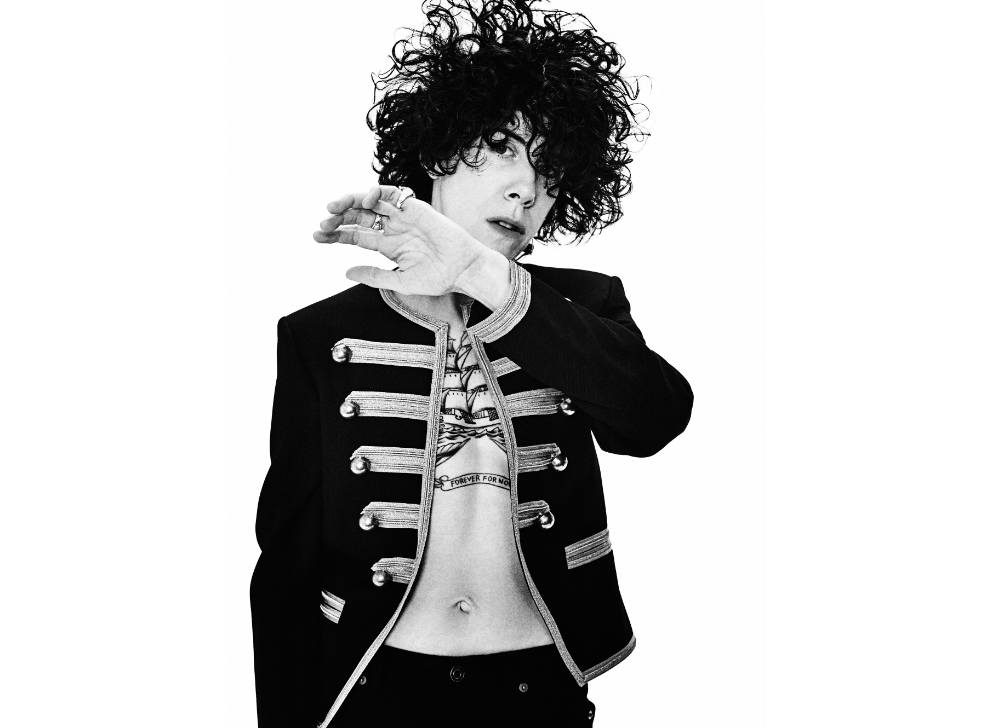
Image: LP, courtesy of Michael Comte.
LP is an incredible artist and songwriter from New York City now living Los Angeles. With a unique and powerful voice, she has been described as a mix of Jeff Buckley, Florence + The Machine and Janis Joplin, yet her style and sound is all her own. In today’s crowded musical landscape, she stands out as a real artist with meaningful music. In addition to being one of Esquire’s Best New Artists, she was also Vogue’s Artist of the Week and has since been featured by CNN, Elle, Rolling Stone, Buzzfeed, Billboard, and more. The LA Times called her voice “show-stopping; the kind that draws standing ovations,” and the Wall Street Journal noted that she was “knocking on stardom’s door.” LP is also a veteran of the late night television and festival circuit, and has written popular songs for Christina Aguilera, Rihanna, and Cher.
Her single “Into the Wild“ has sold more than 75,000 copies worldwide and its widely recognizable hook was featured in a global Citibank campaign. Chances are you have heard her newest songs: “Lost on You” was named the #6 most Viral Song on Spotify in the U.S., and “Muddy Waters” is currently featured in the trailer of NBC’s new drama Shades of Blue, starring Jennifer Lopez and Ray Liotta. LP is now with Vagrant Records, and is set to release her new EP this spring and an album later this year.
We were lucky enough to conduct an interview with LP, where she talks about her influences, the feminist label, and the changing music industry.
S: It’s been about a month or so since your residency shows at No Vacancy in LA, can you describe what those were like for me? How was the crowd?
LP: Tuesday was the last one and both shows were great; the first night was kind of like your normal Tuesday night, with a smattering of people that knew that I was playing, and then it doubled for the rest of the time. I feel like everyone was really connecting with the new music, which was nice to see, because when people haven’t heard a song before, yet they can dance to it and feel connected to it, that’s a good sign and it really feels good for the artist too.
S: That’s awesome! I understand that this new EP is a follow-up to your 2014 release of “Forever for Now”
LP: Yeah it is, I mean Forever for Now didn’t get its justly-deserved space, basically; everybody that was with me at the label [Warner Bros] pretty much left or was fired, and that was a lot of people. It was really really good when I was there, and then everybody got replaced, and I saw myself in a sea of strangers when the album was released. To be honest, it really was barely released. I mean, one single came out and it was barely pushed, so that was a bit of a letdown, but that’s just the industry, y’know, that’s just the way it is and it’s just good to get music OUT, and you can’t predict what’s going to happen. It’s nice now to have new shit out and be really enjoying it.
S: Do you have an ideal venue, or collaboration in mind, I know you’ve done a lot of festivals and late-night TV spots?
LP: I love late-night TV shows, they’re really fun, I loved performing on Letterman and Craig Ferguson, and Kimmel was cool. And venues; there’s so many I like to play; I always like me a good Troubadour show. California and L.A. have such a deep entertainment path, and you can really feel it when you’re in a place that has a deep history, it adds to the whole experience.
S: I would imagine it does. To piggyback off of that, do you have any favorite concert moments?
LP: I had some really good festival moments at Bonnaroo and Austin City Limits, and I’ve also had some good tours. Anytime I’m on stage, I try to be as present as I can up there. It’s always a good show to me when I can keep my concentration and focus, and not forget exactly why I’m up there.
S: As to why you’re there, do you think back any particular influences that you remember when you play?
LP: I like all the old classics, I’m big on the Rolling Stones, Zeppelin – the old classic shit, and y’know, cool front people that you can’t take your eyes off of, I love those kind of people. Jeff Buckley is a huge influence, Aretha Franklin also; people that you can tell there’s nothing else they want to do.
S: I love Aretha Franklin! I would imagine that kind of energy comes from just sheer passion and love of the craft. The Rolling Stones article describes your sound as kind of “arena-folk-rock,” would you say that’s accurate?
LP: My stuff, especially the stuff that I was doing on the last record, had a lot of arena-y, big chorus, anthemic moments, yknow? I think, because of my voice, I have a lot of range and a lot of power there. But on this record, I like to say I used it a little less strenuously, which I think is good, because sometimes you wind up doing something just because you can. I feel like I left songs off of my last record that I should have put on; we wound up going for every single song kind of trying to be an anthem. I like that this record is a bit more diverse.
S: With your music, do you find that you’re writing or performing with a certain kind of message in mind? Do you tend to have a specific type of audience or most-dedicated fan base lies?
LP: No, you know, I feel like my fan base is really diverse. I’m always kind of surprised: it’s diverse in terms of age, sex, orientation, etc. I think the people who come to my shows are surprised because I think they expect more of a lesbian following. I’ve never went for any kind of following, or a certain audience. I just go where people are diggin’ it; I try not to go heavy on my sexuality or how I carry myself, because I just want it to be something that’s not an issue. I know it is an issue, but not really for me, it isn’t. There’s no other way to be than how I am, so I’m not like “Let me find everybody who’s like me or like-minded,” yknow? I’d rather just be me.
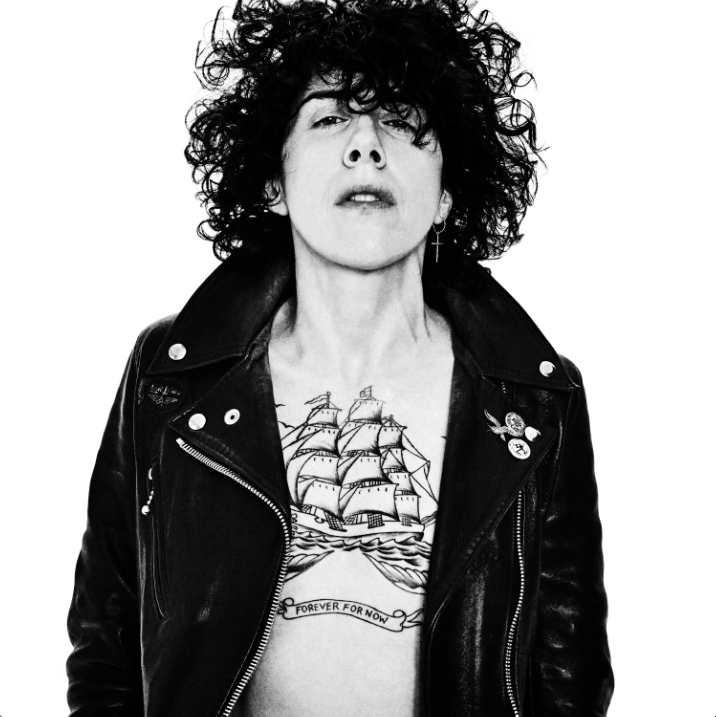
S: That’s brilliantly put! Going off of that, I saw that “Night Like This” peaked at Number 35 on the Japan Hot 100 Singles, so that’s why I brought it up, as an example of the different and unexpected fan base that you do have.
LP: That was cool, yea I had some shit going on in Japan, but I haven’t gotten over there yet. I did a festival, Summer Sonic, which was amazing, and I had a really good crowd. Going back to the other question, that has to be one of my favorite shows: my stage was facing the beach and the water and it was kind of a cloudy day; it was very surreal. And it was all Japanese people as far as you could see to the water; it was so cool, it was just kinda like… “Where the fuck am I”… and it was beautiful, and they’re such beautiful fans.
S: Would you consider music to be an outlet or a platform for social change?
LP: Of course, I wish that music was more 60s and 70s, that things could be governmentally changed from music, that must have been a trip to see, yknow? But I think that as far as diversity goes, I think that’s still a good thing with music; people could come to a song and then see who does it. Now, we really have a lot of music at our fingertips, literally, so I think people are so much more connected. You used to grow up in a town, and you could be a bit sheltered, but now you see everything, and of course it’s socially changing, I think sometimes for the better, and sometimes for the worse. For example, it’s not always the best message in all music, and people will always say, “Oh, I don’t know if I want my kid to listen to this,” but you bet your ass that if you don’t want them to listen to it, they’re gonna find it.
S: Would you say that you write more based on life experiences, love, social experiences? Where does that inspiration come from?
LP: Like most people, I think I wrote most from my bird’s-eye view of things. Just as any social human being walking the earth, certain things just get into my songs because either I know somebody or see something or I’m feeling the same pressure. Everybody has their individual pressures, and then they have their familial pressures, and their job pressures; and then we all have our communities, our earthly pressures, and monetary pressures – its constant. I think things move so fast now, you can see a lot of people are getting lifted and people are also getting left behind. We’re in a very fast evolutionary stage right now – mentally – and we don’t even know how fast. I think people who grew up in this time, before cellphones were big, are going be looked at like: “Jesus Christ, what was it like before cellphones?” People later will be amazed, it’s like imagining a time before cars.
S: Some people have said that live music is also kind of changing with technology and what people want to hear, how do you feel about that?
LP: Yea, I think sometimes it gets a little too electronic sometimes for me. I’ll listen to music that’s DJ’s and stuff, but… First of all: I’m short as fuck, I don’t want to go to a show where people are taller than me, and look and see this tiny little pinprick up there who’s standing behind a computer, I could give a fuck, I’d rather be in my car, in my house, in a bar, like I don’t need to go to a show to see that, but like I still love going to see bands and shit, yknow.
S: You were talking about things moving fast, people getting left behind: do you have any advice for young professionals in their teens, maybe artists just starting out, trying to figure themselves out?
LP: Yea, I mean I would say ‘stay open’ and don’t be afraid to reach back and do some classic shit, but don’t be cut off from change either. It’s really good to grow, and I think a lot of great, positive, amazing things have happened to and with music, especially in the last 10 years.
S: Such as?
LP: I think it’s gotten bigger: first of all, it’s gotten diverse, as I’ve said, people are incorporating so many different types of sounds and combinations of music, and I think that a lot more people can do it, and that’s exciting. I mean this has been said a thousand, million, trillion times, but just a kid in his fucking room with a computer and a guitar can put together this beautiful piece of music, and I think that’s amazing. I think the veil has kind of been lifted a bit, off of what can and can’t be done. You used to have to be grabbed by the record company machine and put in a studio and now you don’t, and that’s incredible. I think that everybody doesn’t have to always be a songwriter; there’s people that are great interpreters and singers and I think there’s room for everybody. I’m not here for like that elitist bullshit. I think people should just do what they want and not get too hung up on what sells. I’ve been in and out of that headspace many times on a songwriter side and the artist side, and you shouldn’t pay attention to that. You should try to quiet that part of the mind and see what your soul is gonna throw out there because that’s the ultimate. Any piece of music that I’ve ever NOT been able to live without, I can tell it’s been created from that place. And if you do the work, it comes. There’s this book I was reading called The War of Art and it’s all about that; just sitting down and doing it, which is actually one of the hardest things to do, and that when you do that, that’s when the music comes, it’s a tough space and there’s a lot of extra noise out there.
S: I saw you covered Beyonce’s “Halo” on your Youtube channel in 2012; I don’t know if you saw the 2014 VMA’s where the end of her show had the gigantic word ‘FEMINIST’ emblazoned behind her and she was in her power stance. I’m curious: do you consider yourself a feminist, and what do you think of feminism as a movement?
LP: Yes, of course I do, I mean I have my brand of femininity, and I think there’s a massive bell curve of what it is, I mean androgyny is kind of where I like to linger, but I think that as we get more civilized, there’s an evening out of this chasm that’s been between masculine and feminine.
S: Agreed, you’d be amazed how many people I encounter, not that you have to pick and claim the label always if that’s not where you’re at in that point in time, but so many people discard it.
LP: They’re wary, because they associate ‘feminism’ with being combative, and I think people don’t understand – even lesbians, we have that ‘angry lesbian’ stereotype- it’s like, well… when shit’s coming down on you, sure you gotta be angry. And I applaud and am grateful for all the people that had to be combative that have allowed me to walk around how I do.
S: I feel that.
LP: The term ‘feminism,’ it’s about achieving equality in all political, personal, cultural spheres; how is that combative? See, it’s only combative if other people don’t want that, and then who the fuck are they. It’s like, hmmm I’m really surprised that someone put a negative connotation on a term that meant equality for women. Huh. And if you’re not a feminist, then what exactly are you?
S: That’s great, I would love to get a bumper sticker that said exactly that! To wrap it up, do you want to talk a little bit about the things you have lined up for the future?
LP: I’m going to put an EP out in March, and I’m gonna tour, and I have a lot of new songs, and I’m gonna bombard you with new songs until I’m in the grave: that’s it, that’s what I have planned.
Follow LP on Twitter, Youtube, Facebook, Soundcloud, and Instagram for updates!
Listen to “Muddy Waters”: https://soundcloud.com/vagrantrecords/lp-muddy-waters
Listen to “Lost on You” : https://soundcloud.com/iamlpmusic/lost-on-you/s-6Zynv

